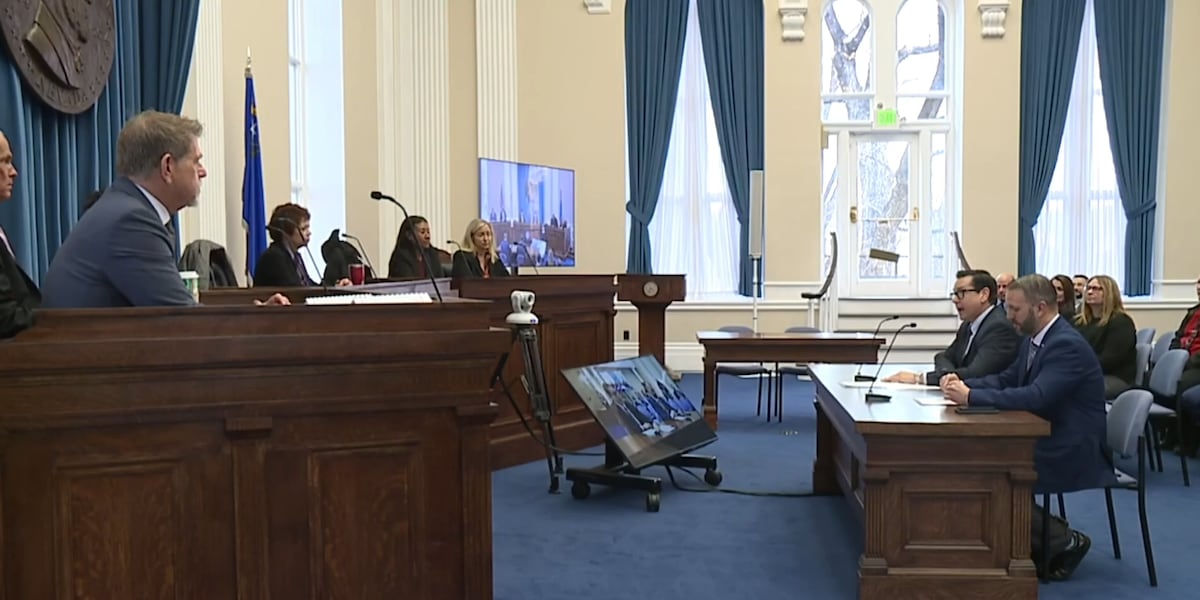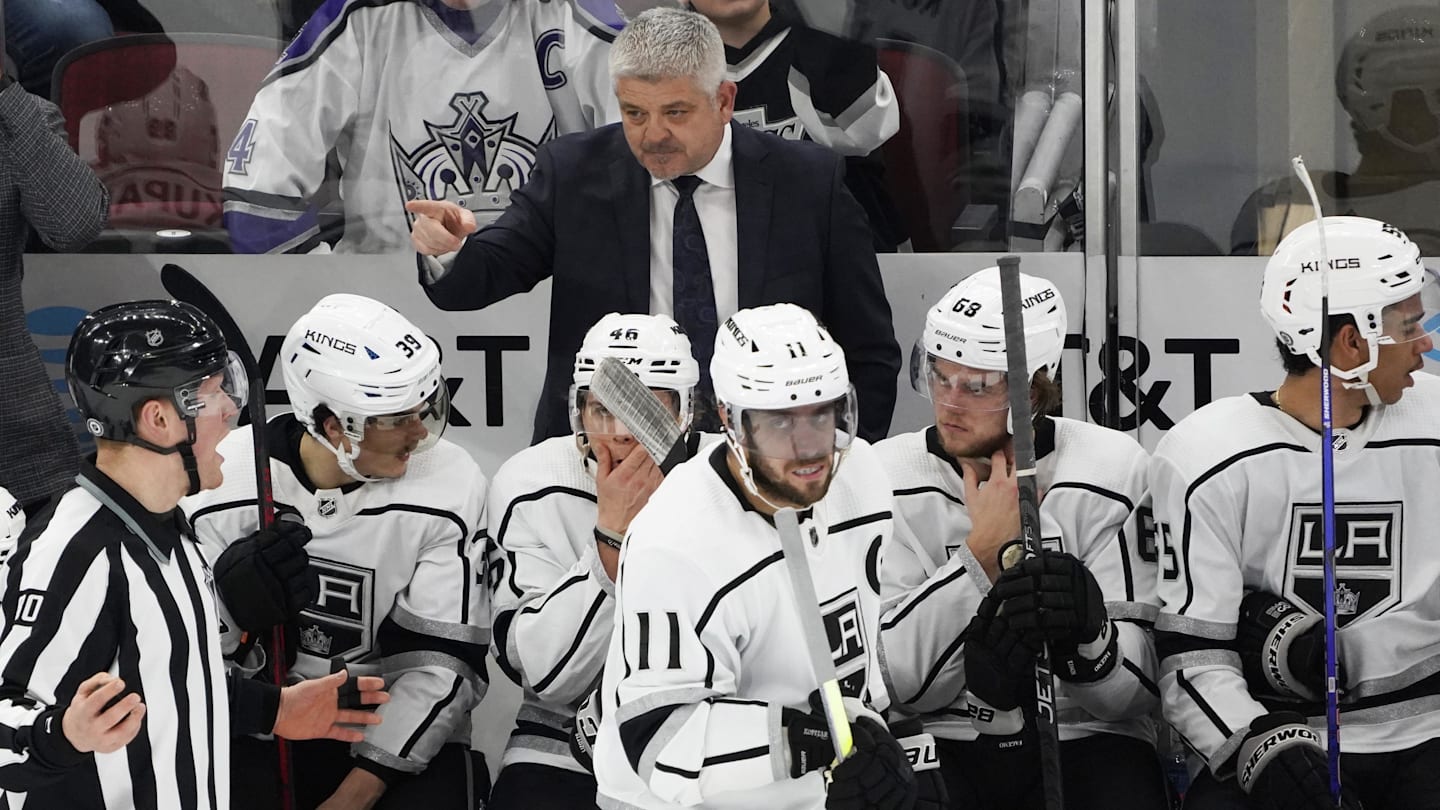Idaho
Idaho Supreme Court hears oral arguments from Babe Vote, Secretary of State on lawsuit appeal – Idaho Capital Sun

The Idaho Supreme Court on Monday heard oral arguments in a case where Idaho voter advocates are pushing for the court to allow them to appeal their challenge against two voter laws passed during the 2023 legislative session.
In March, Babe Vote and League of Women Voters groups filed a lawsuit against the Idaho Secretary of State in response to the passage of House Bills 124 and 340. In their lawsuit, they allege that the laws violate young Idahoan’s constitutional right to equal protection and the right to suffrage under the Idaho Constitution.
An Ada County judge dismissed the case in October, so the voter advocacy groups filed an appeal and are asking the court to reverse the district court’s decision to dismiss the case.
Which laws are involved in this lawsuit?
House Bill 340 has been in effect since July, and it changed ways individuals could have registered to vote during the November election. It also created no fee ID cards offered by the Idaho Transportation Department for people age 18 and older who have not had a driver’s license in the previous six months.
House Bill 124 removes student identification cards as an acceptable form of personal identification to vote on Election Day, and it takes effect in January.
‘It’s not just about students,’ Babe Vote attorney says
Matthew Gordon, the attorney representing Babe Vote, said the laws give the Legislature “unlimited power” to shape the Idaho electorate.
Additionally, Gordon said that the laws disproportionately impact students, senior citizens, people with disabilities and newly arrived Idaho residents.
While House Bill 340 created free ID cards to vote in the election, an option offered by the Idaho Transportation Department for people age 18 and older who have not had a driver’s license in the previous six months, Gordon said that the cards do not remedy for 17-year-olds who will turn 18 by election time, or for newcomers from out of state that do not have time to get an Idaho driver’s license.
Justice Gregory Moeller said that he understands the argument that the laws have made it more difficult for Idahoans to vote, and he asked if there was anyone that had fully lost the right to vote.
In response, Gordon said some people living in nursing homes have lost their right to vote — particularly those who have not renewed their driver’s license because they can no longer drive and do not have transportation to get to the DMV to attain the free ID card.
Gordon said he would like the lawsuit to proceed in district court again so they can share other instances where the new laws hindered people’s ability to vote.
Sam Sandmire, a board member with Babe Vote, told the Sun that her team appealed this case to the Supreme Court because the laws “take away people’s fundamental right to vote.”
“We hope our challenge to these laws prevails so all legally eligible Idahoans’ fundamental right to vote is restored, and so we can get back to conducting voter registration drives where we can help these people complete their voter registration,” she said.
There’s always going to be ‘burden on the voter,’ Idaho attorney says
Joshua Turner, an attorney with the Idaho Attorney General’s Office on behalf of the secretary of state, argued that the laws are constitutional, and they address security and administrative consistency concerns.
Turner said student IDs had always been an “outlier” in comparison to other forms of identification on Election Day. While there is no evidence of voter fraud from student identification, House Bill 124 is “preventative legislation” to that possibility, he said.
Turner compared the voting laws to hunting and fishing regulations, noting that stricter regulations do sometimes make activities more difficult. In this case, he said the laws are meant to regulate how people can vote, but they are not restricting who can.
“There’s always going to be some process, some burden on the voter to show ‘I’m a qualified elector, I can come and vote at this election because I’ve got the right to vote,’” he said.
After the hearing, Secretary of State Phil McGrane told the Sun that he felt good with the district court’s decision to dismiss the case in October, and that despite the pending litigation, he is looking forward to helping Idahoans register to vote.
“With the 2024 election cycle, we’re just excited to start getting ready for the election and hopefully being able to work with organizations like the League of Women Voters and Babe Vote to help people get registered in advance of what’s coming,” he said.
What’s next for House Bills 124 and 340?
There are different possible outcomes of this case.
Idaho voter registration lawsuits in limbo: Unraveling the latest in voting legal battles
If the Idaho Supreme Court sides with Babe Vote’s appeal to reverse the district court’s decision, then the case would be sent back to the district court for further proceedings.
If the Idaho Supreme Court upholds the district court’s dismissal of the case, then the lawsuit will be fully dismissed.
Starting January, student IDs will no longer be an acceptable form of identification upon voting in Idaho.
However, there is pending litigation in federal court related to House Bills 124 and 340. In March, March for Our Lives Idaho, a student-led mobilization organization, filed a suit in federal court alleging the laws violate the 26th Amendment to the U.S. Constitution, which says people shall not be denied to vote because of their age.
GET THE MORNING HEADLINES DELIVERED TO YOUR INBOX

Idaho
Ex-Husky Cort Dennison Reportedly Joins Idaho Coaching Staff

Cort Dennison, one of the University of Washington’s more decorated linebackers over the past decade and a half, has joined Thomas Ford’s new Idaho coaching staff as its defensive coordinator, according to ESPN’s Pete Thamel.
Dennison, 35, comes to the Vandals from Missouri State, where he was the defensive coordinator for one seasons for the FCS soon to be FBS program.
Considered one of college football’s rising assistant coaches and a proven recruiter, Dennison has been trying to rebuild his career since getting fired at Louisville in 2021 while serving the second of two stints with the Cardinals.
Sources: Cort Dennison has accepted the job as the defensive coordinator at Idaho. He was last the inside LB coach at Missouri State. He’s worked as an assistant at Louisville for two stints. He’s worked on staffs at Utah in 2023 and coached outside LBs at Oregon in 2018.
— Pete Thamel (@PeteThamel) December 26, 2024
According to reports, he was involved in a domestic dispute with another Louisville athletic department employee in which all allegations against him later were withdrawn.
A Salt Lake City native, Dennison went home and worked at Utah in 2023 as a defensive quality control coach for Kyle Whittingham.
For Louisville, he joined an ACC team headed up by coach Bobby Petrino in 2014-17 and again in 2019-21 for coach Scott Satterfield, holding a variety of assignments that included co-defensive coordinator and outside linebackers coach.
Peter Sirmon, former UW linebackers coach in 2012-13 and now the California defensive coordinator, worked with Dennison as the Louisville DC in 2017.
Dennison spent the 2018 season with Oregon as its linebackers coach.
As a player, Dennison was recruited to the UW in 2007 by Tyrone Willingham’s staff. By 2011, the 6-foot-1, 234-pound linebacker was a team captain for Steve Sarkisian, a 30-game starter and a second-team All-Pac-12 selection who topped the conference in tackles with 128.
Dennison finished with 15 tackles in his final Husky outing, a 67-56 loss in the Alamo Bowl to Baylor and Heisman Trophy-winning quarterback Robert Griffin III.
For the latest UW football and basketball news, go to si.com/college/washington
Idaho
Obituary for Betty Pearl Day at Eckersell Funeral Home

Idaho
U of Idaho murder suspect Bryan Kohberger investigated in 2nd home invasion attack
-
/cdn.vox-cdn.com/uploads/chorus_asset/file/24924653/236780_Google_AntiTrust_Trial_Custom_Art_CVirginia__0003_1.png)
/cdn.vox-cdn.com/uploads/chorus_asset/file/24924653/236780_Google_AntiTrust_Trial_Custom_Art_CVirginia__0003_1.png) Technology5 days ago
Technology5 days agoGoogle’s counteroffer to the government trying to break it up is unbundling Android apps
-

 News6 days ago
News6 days agoNovo Nordisk shares tumble as weight-loss drug trial data disappoints
-

 Politics6 days ago
Politics6 days agoIllegal immigrant sexually abused child in the U.S. after being removed from the country five times
-

 Entertainment7 days ago
Entertainment7 days ago'It's a little holiday gift': Inside the Weeknd's free Santa Monica show for his biggest fans
-

 Lifestyle7 days ago
Lifestyle7 days agoThink you can't dance? Get up and try these tips in our comic. We dare you!
-

 Technology1 week ago
Technology1 week agoFox News AI Newsletter: OpenAI responds to Elon Musk's lawsuit
-
/cdn.vox-cdn.com/uploads/chorus_asset/file/25672934/Metaphor_Key_Art_Horizontal.png)
/cdn.vox-cdn.com/uploads/chorus_asset/file/25672934/Metaphor_Key_Art_Horizontal.png) Technology2 days ago
Technology2 days agoThere’s a reason Metaphor: ReFantanzio’s battle music sounds as cool as it does
-

 News3 days ago
News3 days agoFrance’s new premier selects Eric Lombard as finance minister


















